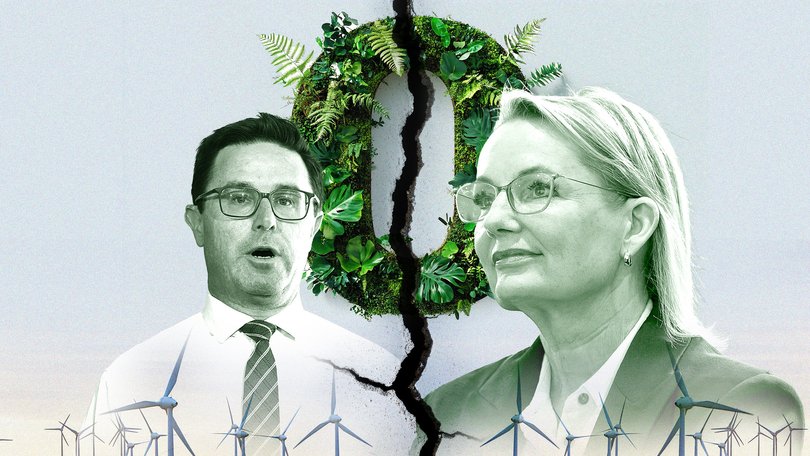Coalition energy policy sparks backlash as expert warns ditching net-zero will drive up power costs
The Coalition is selling its energy policy as economically sensible, but one expert believes it will actually be more expensive for Australian households.

The Coalition is touting its new energy policy as affordable and responsible, but an expert warns abandoning climate goals will only drive up costs.
After a damaging internal brawl, the Coalition unveiled its policy on Sunday, promising to ditch the net-zero emissions by 2050 target if it wins the next election, while potentially pouring taxpayer money into new coal and gas projects.
Opposition Leader Sussan Ley said she cared about tackling climate change, but would prioritise lowering the cost of electricity and gas.
Sign up to The Nightly's newsletters.
Get the first look at the digital newspaper, curated daily stories and breaking headlines delivered to your inbox.
By continuing you agree to our Terms and Privacy Policy.She said the Coalition wanted to continue bringing renewables online, but claimed the shift away from fossil fuels such as coal and gas was happening too fast.
“We believe in affordable energy at the centre of our economy,” she told reporters on Monday.
Unlocking gas supply was a key part of the policy, but Ms Ley has left the door open to new coal-fired power stations as a source of base-load energy to back up renewables in the electricity grid.
A Coalition Government would also lift the national moratorium on nuclear power and pursue investments in technology, including carbon capture and storage, solar uptake, biofuels and low emissions metals.
Griffith University energy systems expert and Climate Council member Joel Gilmore said the proposed technologies won’t bring bills down and new coal was “incredibly expensive”.
“There’s great wishful thinking that we could go back to the good old days, but just like you can’t buy lollies for one cent at the corner store, you can’t buy coal for rock-bottom prices,” he said.
“It just doesn’t exist anymore.”
If renewable energy technology had not already been built, electricity prices would be 30 to 50 per cent higher than what they already were, Dr Gilmore said.
“Russia’s invasion of Ukraine has driven a massive increase in electricity cost over the last few years, not renewables,” he said.
The cheapest form of energy was wind and solar backed by storage, Dr Gilmore said, adding nuclear power was only an important technology for nations with no space or renewable resources.
“Australia has the best wind and solar resources. We have to lean into our competitive advantage,” he said.
Abandoning net-zero would also steer away investors, he added.
“If we don’t have that policy certainty, then investors are going to go elsewhere,” Dr Gilmore said.
